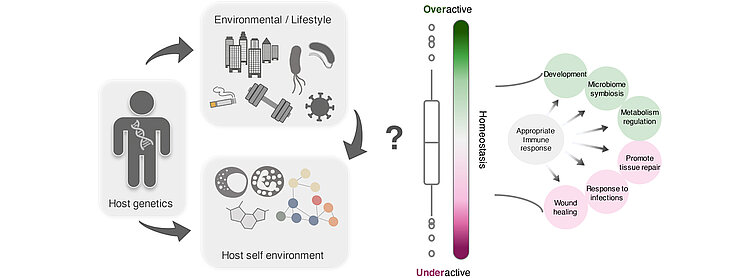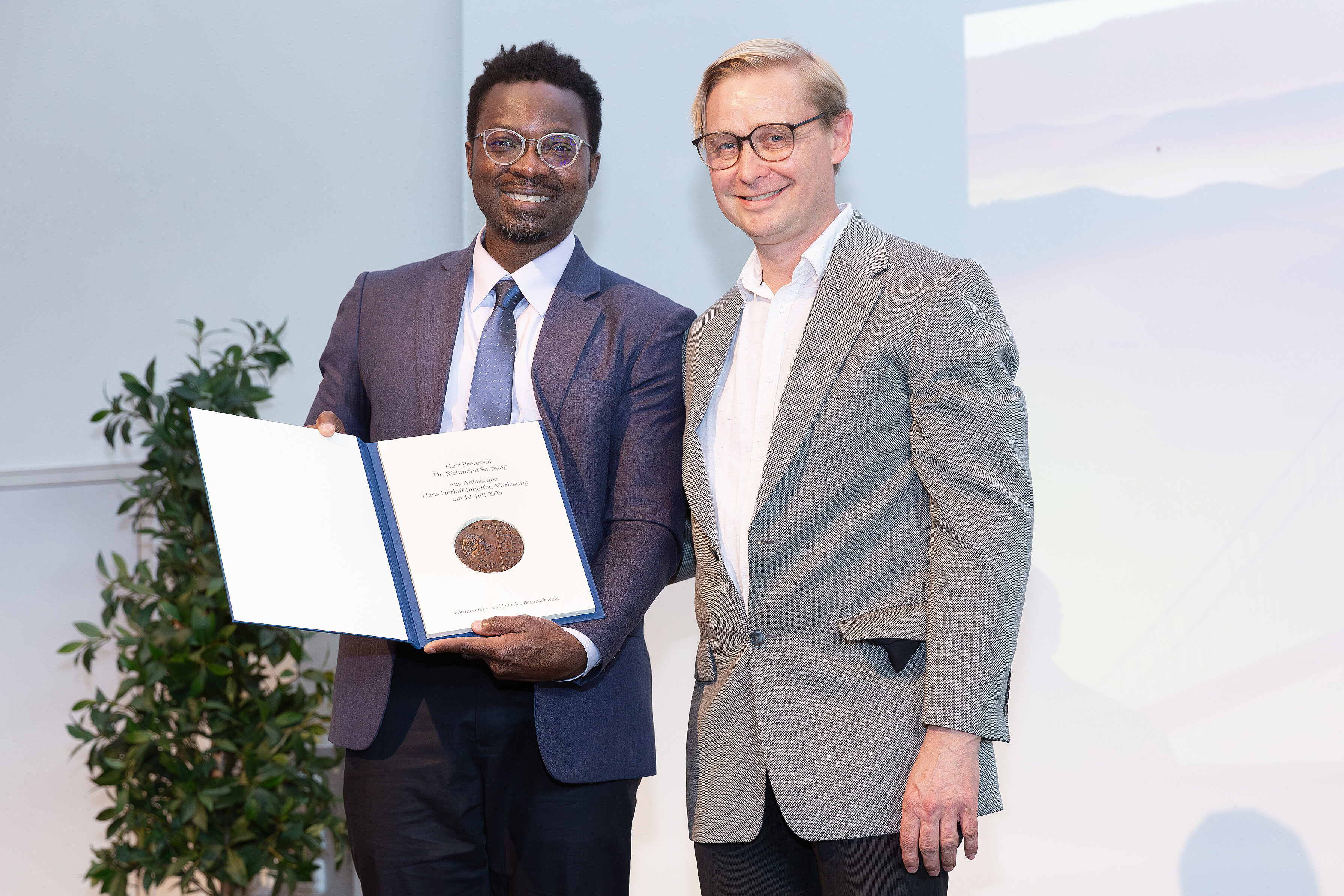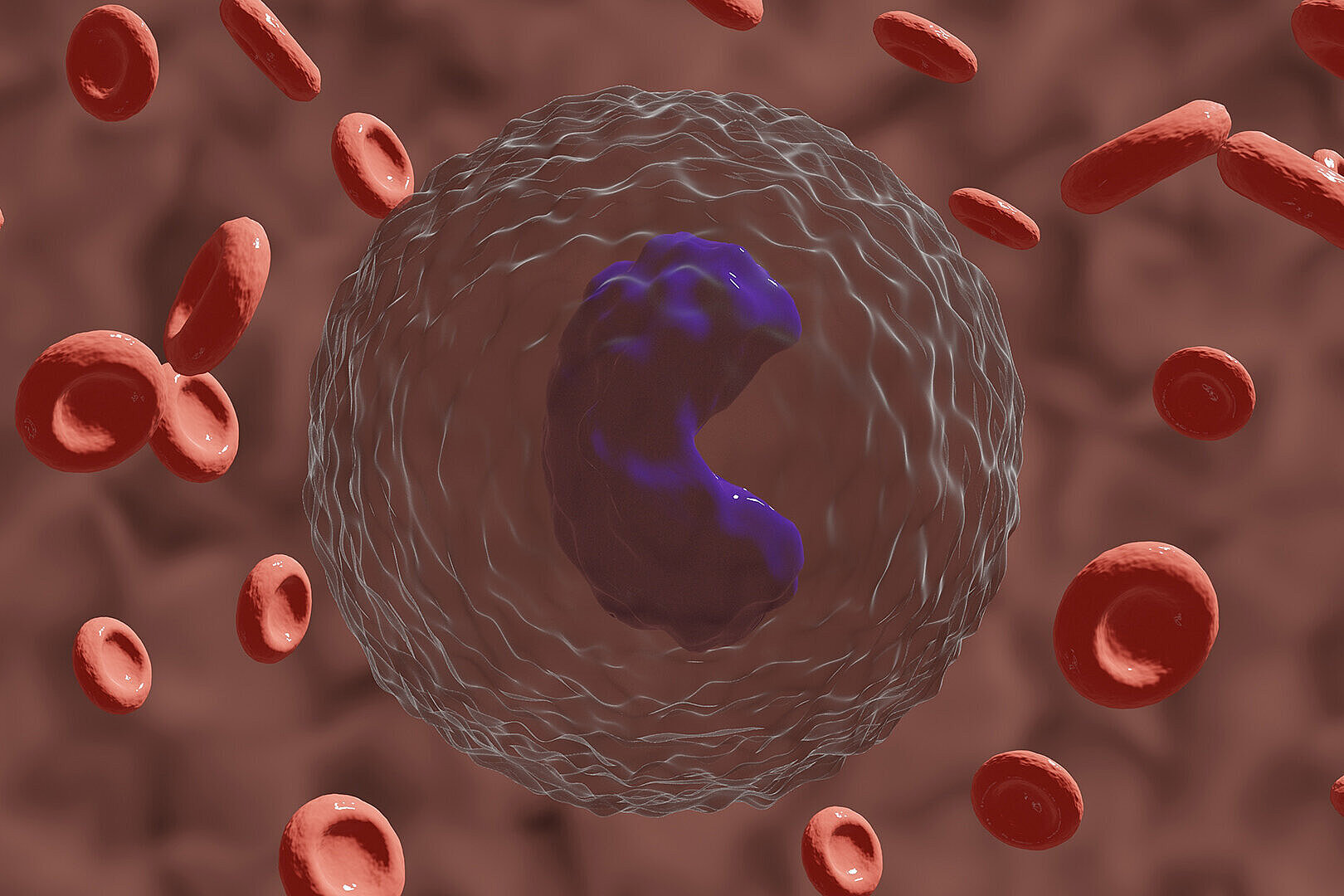
Computational Biology for Individualised Medicine

Our Research
The research department “Computational Biology for Individualised Medicine” studies the interaction of genetic background and environment, and its contribution to infection and immune-related diseases. We focus on applying and developing the computational and statistical approaches to study the effect of genetic factors on a variety of molecular levels (such as genetics, genomics, metabolomics etc.), immunological parameters and functions, and complex diseases. We are currently working on the following areas:
Genetic regulation of molecular and immune phenotypes
We study how genetic variation affects molecular and immune phenotypes such as gene expression, metabolites and cytokine responses to stimulations. We develop computational methods and algorithms to fully exploit high-throughput datasets from the most recent profiling technologies, e.g., causal inference and deconvolution of the overall genetic regulation effects of gene expression into relevant cell types.
Integration of multi-omics
We integrate large multi-omics data sets and immune profiling of patient/control cohorts to unravel the genotype-phenotype map on a genome-wide scale and built computational models for predicting immune functions and disease risk.
Single cell genomics
We apply cutting-edge techniques to study genetic regulation of gene expression in response to stimuli at single-cell resolution and we develop novel computational approaches for single-cell biology.
For information on current projects please visit the CiiM website.
Our Research
The research department “Computational Biology for Individualised Medicine” studies the interaction of genetic background and environment, and its contribution to infection and immune-related diseases. We focus on applying and developing the computational and statistical approaches to study the effect of genetic factors on a variety of molecular levels (such as genetics, genomics, metabolomics etc.), immunological parameters and functions, and complex diseases. We are currently working on the following areas:
Genetic regulation of molecular and immune phenotypes
We study how genetic variation affects molecular and immune phenotypes such as gene expression, metabolites and cytokine responses to stimulations. We develop computational methods and algorithms to fully exploit high-throughput datasets from the most recent profiling technologies, e.g., causal inference and deconvolution of the overall genetic regulation effects of gene expression into relevant cell types.
Integration of multi-omics
We integrate large multi-omics data sets and immune profiling of patient/control cohorts to unravel the genotype-phenotype map on a genome-wide scale and built computational models for predicting immune functions and disease risk.
Single cell genomics
We apply cutting-edge techniques to study genetic regulation of gene expression in response to stimuli at single-cell resolution and we develop novel computational approaches for single-cell biology.
For information on current projects please visit the CiiM website.
Prof. Dr. Yang Li
People are different in genetic background. We study this inter-individual variation and want to understand susceptibility to infections and predict disease risk

Yang Li received her doctoral degree of bioinformatics in 2010 from the University of Groningen, the Netherlands. She continued her career as a postdoc at the Groningen Bioinformatics Centre and she received the Young Investigator Award of Bioinformatics from the Netherlands Bioinformatics Centre in 2011.
She then became a principal investigator / assistant professor in the Department of Genetics at the University Medical Centre Groningen. Her successful research on systems genetics of immune-related diseases was awarded with two personal grants: the VENI (Dutch Organization for Scientific Research, 2013) and the Off-Road (the Netherlands Organisation for Health Research and Development, 2016). In 2018, Yang Li received the prestigious “Hypatia Grant” from the Radboud University Medical Center.
Since 2019, Yang Li heads the Department of Computational Biology of Individualised Infection Medicine at the Helmholtz Centre for Infection Research / Centre for Individualised Infection Medicine in Hannover.
Selected Publications
For all publications by Yang Li see Google Scholar.
Job offer
The Research Department “Computational Biology for Individualised Medicine” welcomes applications from candidates qualified for either a PhD or Postdoc position. Please check here for open positions. But also unsolicited applications are always welcome.
We are looking for motivated applicants with a strong background in Bioinformatics / Computational Biology, Computer Science, Statistics, Biology or Physics, good programing skills and interest in interdisciplinary research in biology and infection research.
Our research focuses on understanding inter-individual variation in susceptibility to immune related diseases and predicting immune functions through integration of large multi-omics and in-depth immune phenotypes datasets from a variety of existing and planned patient cohorts.
Methods that we employ or develop in our research are related to the fields of Bioinformatics, Systems Genetics, Machine learning & deep learning and Systems immunology.
Please send your applications to Yang Li.
We continuously offer Masters/Bachelor research projects. Please contact us for details by email.






